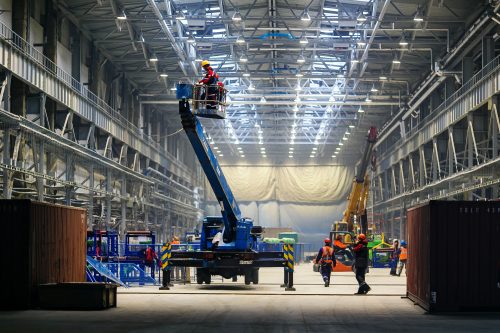
If you’re in the process of setting up your own business you’ll know that there are some pretty huge decisions in front of you. Some of these decisions will dictate whether or not your business is successful. It depends what industry you’re in, but in the USA about 20% of businesses fail, within their first year. 50% fail in five years too, so it doesn’t always get better. These initial decisions might set you on a clear path. If you’re a business that needs expensive machinery to operate, one of the key decisions you’ll need to decide on is whether to lease or buy equipment.
Buying Equipment: The Good And Bad
Some startups and newer businesses will elect to buy their equipment instead of leasing it. It depends what industry you operate in but it’s probably going to be quite expensive. It could be a bunch of computers, heavy machinery, equipment, etc. Buying this kind of equipment can quickly enter six figures worth of expenditure and beyond. Usually, only startups with significant investment can afford to do this. The benefit here is that you don’t have to enter into any lease arrangements. It depends on the arrangement, but they’re usually more expensive over time.
The bad is that you’re going to be spending a larger chunk of cash on equipment. This money could be better used on advertising, recruitment, building rental, etc. While buying means you keep your monthly overheads down, you start with less money. If the business is the kind where you need large amounts of cash on hand, it might not be right for you.
Leasing Equipment: The Good And Bad
Leasing is a lot easier for new businesses to do because it doesn’t require a huge outlay of cash. When you lease equipment, you pay monthly (depending on the contract) for the privilege. You also have to account for it on your balance sheet. Lease accounting can be pretty complicated so factor that into your decision when looking at lease vs buy for business needs. There is accounting software that can help you, and accountants that you can hire. You might also need someone to check over the contract to make sure you’re getting a fair deal, especially if the contract is for a long time or for the whole life of the leased item.
For most new businesses, this is the viable choice. It also gives you better management in terms of cash flow. However, it does mean you have to spend a bit more time on your accounting practices but if you implement these from the beginning, it should be pretty easy.
Lease And Buy
Soem businesses might like to do both. They could lease some equipment, and buy others. You might buy a bank of computers for your call center or service staff, and then lease the servers or heavy machinery for factory based workers.
Splitting the leasing and buying of equipment can allow you to better tailor your outgoings over the next few years of business operation.
Some have no choice. For example, a car showroom would bulk buy a lot of vehicles and sell them on…you can’t lease a load of cars as a showroom…but you can if you need company cars for your sale’s staff. If you think about the exact dynamics of your business, you can make sure you make the right decision in terms of leasing or buying.
To Conclude
If your business absolutely cannot run without the relevant machinery, you have to choose between one and the other. Make sure you and your business are on sound financial footing before approaching a business to lease machinery. If you’re not, they might refuse you and you’ll be left with no way to acquire the right items.
Interesting Related Article: “Lubrication and Industrial Equipment – Maintenance Essentials“

